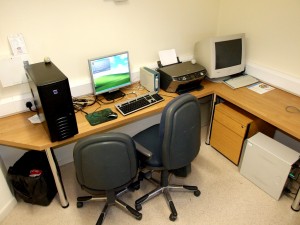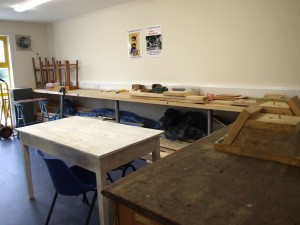About us
In 1981 a group of parents of brain-injured adults in Gloucestershire met to share their experiences. They created a vision to support survivors of acquired brain injury, their families, carers and friends through the provision of on-going, long term therapeutic enablement activities, respite care and specialist advice and support. They worked in partnership with health care professionals and statutory partners to design a service. In 1988 Headway Cotswold Trust (trading as Headway Gloucestershire) became a registered charity (299805) and incorporated as a limited company (02274966).
Our Vision is:
To be recognised as the expert provider of support for people with an acquired brain injury and to continue to campaign to increase knowledge and awareness of the impact of acquired brain injury on individuals and those close to them.
To create an environment where people are ‘back on track in a way that is right for you’ and campaign to ask that people with an acquired brain injury are treated equally in society.
Our Mission is:
We will achieve our Vision by providing specialist services and support to improve the lives of people with an acquired brain injury in Gloucestershire; their partners, families, friends and carers.
We offer a warm and welcoming environment for all those with lived experience of acquired brain injury throughout Gloucestershire.
Our Objectives are:
- Provide therapeutic/holistic activity towards enablement following an acquired brain injury.
- Offer opportunities for families and carers of people living with an acquired brain injury.
- Ensure that people living with an acquired brain injury and their families have access to accurate information about the benefits and services available to them.
- Offer regular, confidential support to people living with an acquired brain injury through either or all our services (Enablement, Community Links, Family Support)
- Advise, support, and educate other professionals and carers on how best to support people living with an acquired brain injury.
- Support family members on an individual and group basis.
- Organise social events for people living with an acquired brain injury and their families.
- Work with organisations locally and nationally that can benefit people living with an acquired brain injury.
- Raise awareness of Acquired Brain Injury and publicise our services.
- Improve and expand services for people with an acquired brain injury and provide support at locations across Gloucestershire, not just within the Headway Centre in Gloucester.
Our Current Services:
- Our Community Link Service provides outreach information, specialist brain injury recovery advice for survivors and their families and supports them as they come to terms with the changed circumstances brought about by brain injury.
- Our Enablement Service is centre based and open every weekday offering activities that focus on the five elements of rehabilitation: emotional functioning; cognitive functioning; learning; social interaction and behaviour. This takes the form of a structured timetable so that survivors can select the activities that help them work towards their goals. We work one to one and also employ a group format to harness the unique recovery benefits of peer contact and support.
- Our Social and Support Groups provide a relaxed environment within the community where survivors and their families can meet new people, share experiences and support each other. We provide training events, social events and facilitate family support groups.


